The case for designing and building schools in a way that contributes to positive student well being grows ever stronger as new research comes to light. But did you know that improving acoustics in the learning environment is an extremely powerful and easy way to make improvements to a school’s existing bricks and mortar?
Leading UK manufacturer Sound Reduction Systems offers an extensive range of solutions which are guaranteed to enhance any learning environment and improve student well being.
Diarmaid Lawlor, director of Place with Architecture & Design Scotland, who has been one of the most vocal advocates of design for well being in education, sums it up well:
“The foundation of learning is well being. Healthy social and emotional development in childhood and adolescence has been shown to be positively associated with better educational outcomes. The quality of our environments directly affects the experience of well being.”
Whilst design for well being has to consider the whole school complex – including the outdoors – the quality of indoor spaces such as classrooms and communal areas is critically important for everything from teaching engagement to socialising.
The main acoustic issue indoors is sound reverberation, which can be tackled effectively using the Sonata range of acoustic panels from Sound Reduction Systems.

Students disengage when they can’t hear their teachers
A healthy learning environment is one where children can feel relaxed and comfortable, without disruptive behaviour. Unfortunately, when students have difficulty hearing what their teacher is saying, they are likely to ‘switch off’ and in some cases misbehave.
Whilst this can result in lower attainment levels for a whole group, there is growing awareness that this kind of environment can also contribute to students feeling stressed and affect their mental health.
Special attention required for SEND students
The effects of excessive noise are more severe for children who have greater sensitivity to noise – those with Special Educational Needs and Disabilities (SEND). It is important to recognise that noise impacts can be significant on children with ADHD or autism in particular, and be more challenging for students with a hearing impairment. By not addressing these sensitivities, schools could inadvertently be failing on their inclusion goals.
With the government committing an extra £780 million in 2020-21 to help children with Special Educational Needs and Disabilities (SEND) to reach their potential, improving acoustics in schools has to be a priority from this budget. Funding is set to be available from April.
Arrange a Free Site Assessment
Key to addressing poor acoustics in schools is assessing the current building conditions. That’s why we offer a free assessment. Our experienced acoustics specialists will visit your school or college and conduct a thorough survey – you will then have a detailed report outlining our recommendations.
To arrange a Free Site Assessment, please call 01204 380 074, email info@soundreduction.co.uk.







